Green Data Lab Conference – Data Analysis for a Sustainable Future
The Green Data Lab conference at Campus Ås will bring researchers together to discuss data analysis methods and applications for a sustainable future.
Invited speakers
Krist V. Gernaey
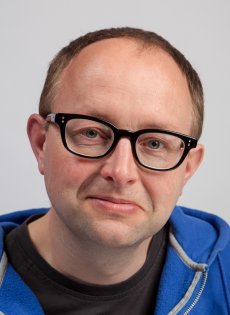
Professor in industrial fermentation technology at the Department of Chemical and Biochemical Engineering at the Technical University of Denmark (DTU) since 2013. Head of the Process and Systems Engineering Center (PROSYS) since 2014. CEO of Bioscavenge ApS, a startup with focus on resource recovery on industrial process streams, from 2017 to 2021.
Krist V. Gernaey has an MSc (1993) and PhD (1997) degree from Ghent University (Belgium). He has occupied postdoc positions (1998-2005) at Ghent University, École Polytechnique de Montréal (Quebec, Canada), DTU and Lund University (Sweden). Associate professor at DTU Chemical Engineering from 2005 to 2012.
The focus of his research work is the modeling, development and optimisation of industrial fermentation, pharmaceutical and resource recovery processes.
Wouter Saeys
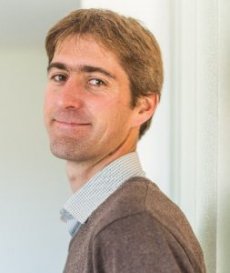
Wouter Saeys obtained his Master’s degree in Bioscience Engineering: option Agricultural Engineering from KU Leuven, in 2002, for which he was awarded the engineering prize by the Royal Flemish Society of Engineers (KVIV). In 2006, he obtained a PhD in Bioscience Engineering from KU Leuven under the supervision of Professors Herman Ramon and Josse De Baerdemaeker for his research on precision fertilization with animal manure using NIRS for on-line manure composition measurement. As a postdoctoral fellow of the Flemish Research Foundation (FWO-Vlaanderen), he specialised in light transport modelling during a six month stay at the School for Chemical Engineering and Advanced Materials of the University of Newcastle upon Tyne, UK, under the supervision of Dr. Suresh Thennadil, and in Chemometrics during a six month stay at the Norwegian Food Research Institute – Matforsk, Norway, under the supervision of Dr. Tormod Naes. In 2010, he was appointed as assistant research professor at the KU Leuven Department of Biosystems, where he leads the Biophotonics group (www.biophotonics.be) with a focus on applications in the AgroFood chain and is responsible for the Master in Biosystems Engineering. His main research interests include light transport modelling and optical characterisation of biological materials, chemometrics and digital agriculture. In 2013, he was awarded by the European Network of Business and Industrial Statistics (ENBIS) with the ‘Young Statistician Award’ for his work on multivariate calibration of spectroscopic sensors in the agrofood industry. Since 2019, he is professor in the KU Leuven Department of Biosystems and in 2022 he has been rewarded by the Special Research Fund (BOF) with a 3rd term of 5 years as Research Professor. In 2022, he received the Thomas Hirschfeld Award from the International Council of Near Infrared Spectroscopy (ICNIRS). He is member of the editorial boards of the Journal of Near Infrared Spectroscopy and Biosystems Engineering and of the Chairman Advisory Committee and the Education Committee of the International Council of Near Infrared Spectroscopy (ICNIRS).
He has supervised 30 PhDs, is (co-)author of 197 peer reviewed journal articles (ISI), and has an h-index of 43 (ISI).
More information can be found at: http://www.kuleuven.be/wieiswie/en/person/00036292
Kelly Rijswijk
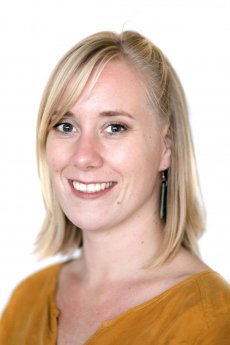
Kelly Rijswijk is currently a researcher within social innovation at Wageningen Economic Research. Her research interest are in understanding the social and ethical aspects of technology and she has a background in rural development, innovation studies, systems thinking and digital transformation. Taking a Responsible Research and Innovation perspective Kelly aims at understanding the impact of the digital transformation process on individuals, organisations, value chains, and agrifood systems. This involves topics such as organisational change, trust, and in- and exclusion. Key to her work is transdisciplinary research and stakeholder engagement.
Kelly’s PhD research was with the Knowledge, Technology and Innovation Group at Wageningen University in the Netherlands. Prior to that she worked as a scientist for AgResearch in New Zealand. Kelly holds a MSc in development and rural innovation from Wageningen University.
Marion O’Farrell

Dr. Marion O'Farrell is a research manager in the Smart Sensors & Microsystems department in SINTEF, Norway. She has a PhD from the University of Limerick, Ireland, in applied spectroscopy (2004).
For almost 20 years, Marion has worked with the development of optical measurement systems for industrial applications and was involved in the commericalisation of QVision, the NIR spectral imaging system, with Tomra ASA. She has published over 50 articles and has two patents: “Food Monitoring System”(IE20040383) and "Measurement of properties of organic material" (201580021396).
Marion's research is focussed on optimising measurement system design using a multi-disciplinary approach that is founded in first principles. She believes that high quality physical data, from robust sensors, can unlock the true potential for digitalisation in industry. Marion is currently leading the strategy process for one of SINTEF Digital's prioritised research area, Sensors.
Marion is a member of the Optical Society of America (OSA). She was a committee member of OSA's Applied Industrial Optics conference from 2012-2018 (general co-chair in 2012 and 2013). In 2019-2020 she was a committee member of OSA's Applied Industrial Spectroscopy conference.
Dominik Flatten
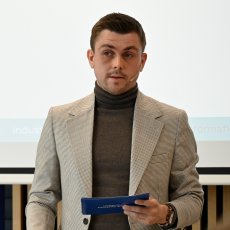
Dominik works currently as a project manager at NCE Seafood Innovation, a Norwegian cluster based in Bergen and recognized as one of the world’s most complete industry clusters and knowledge hubs in the seafood industry. Dominik holds two MSc degrees in ‘Economics and Business administration’ from the Norwegian School of Economics (NHH), Norway and the University of Mannheim, Germany. He has also five years of diverse experiences within the hospitality industry from Germany, Portugal, England, and Hong Kong (2012 – 2017).
Prior to his current engagement, Dominik has been building up a new ‘Sustainability and GHG Controller’ position at Grieg Seafood and was responsible for the group’s overall climate accounts and ESG reporting for 3 consecutive years (2019 – 2022). During this period, Dominik acquired comprehensive knowledge on different global ESG reporting frameworks, including GHG Protocol, GRI, CDP, ASC, and Coller FAIRR.
In his previous position at Grieg Seafood, he became aware how difficult it is to solve sustainability-related issues at the single company-level only. Therefore, tackling industry challenges through collaboration in joint cluster projects together with major parts of the Norwegian seafood industry, is what Dominik is passionate and excited about.
Dominik likes to break down and present complex matters in a clear and easily comprehensible manner. Benefitting from his previous reporting experiences, he is proud of the new ‘Industry Insight’ report series he has helped to build at NCE Seafood Innovation.
At the Green Data Lab Conference, he will share reflections and learnings from his latest report project on data sharing in the Norwegian aquaculture industry.
Lars Qviller
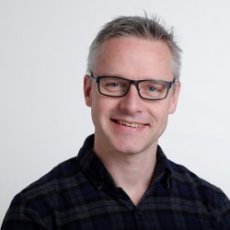
Lars Qviller has been working as a researcher in aquaculture epidemiology at the Norwegian Veterinary Institute since 2015. His research interests are in modelling and understanding of pathogen transmission and propagation in Norwegian aquaculture, with specific emphasis on the integration of geographical data. Lars earned his PhD in 2014 in ecology, where he focused on the interactions between red deer and ticks, in the northern forest ecosystems.
At the Norwegian Veterinary Institute, he has primarily worked with spatial disease and parasite transmission models, including models on Infectious Salmon Anemia (ISA), Pancreas Disease (PD) and salmon lice (Lepeophtheirus salmonis). He is listed as an expert in the expert group for the “Traffic Light System”, a system that regulates the intensity of salmonid aquaculture based on the impact of salmon lice from farmed salmonids on wild salmon populations.
Topics
We invite abstracts for presentations within the following topics:
| Data analysis for sustainability | Opinions about the current trends in data analysis for sustainability, both from a general point of view and, in particular, within food production, agriculture, and aquaculture. |
| Image recognition of tissue/cell structures | Image recognition as a diagnostic tool in diseased animals/fish tissues. Artificial intelligence for classifying tissue types, tissue status and quantification. Infrared microscopic image analysis of tissue and cell structures. |
| Data sharing | Good practice and solutions for facilitating efficient data sharing and collaboration. Examples of successful implementation and use of FAIR principles in interdisciplinary projects, for instance in addressing complex sustainability issues. Use of external resources for data sharing. |
| Spectroscopic sensor data for sustainable food production | Data-driven modelling, monitoring and optimization of food production processes for increased sustainability through better utilization of raw materials, reduced food loss and waste, and improved energy efficiency. Use of in/on/at-line (spectroscopic) sensors for providing food quality and safety measurement. This topic covers process analytical technology, process modelling and control based on spectroscopic data, hyperspectral imaging, and sensor fusion. |
| Data analysis and data resources in animal health, welfare, and productivity | Improving animal health, welfare, and productivity in livestock and aqua farming. |
| Bridging the genome to phenome gap for sustainability applications | Statistics, machine learning and artificial intelligence applications bridging the genome of phenome gaps within molecular biology, genomics, transcriptomics, protein folding and beyond. |
| Digital twins | Status and perspectives of the use of Digital Twins in sustainability issues, for instance within food production, bioprocesses, agriculture, forestry and area planning. |
| Remote sensing for sustainability in agriculture and forestry | Statistics, machine learning and artificial intelligence for earth observation in agriculture and forestry based on remote sensing data. |
| Precision farming applications | Data collected by robotics. Computer vision for plant and animal production of the future. Digitalization, data integration, detection and decision support in precision livestock farming (PLF), precision fish farming (PFF), precision crop farming (PCF) and precision forestry. |
| Digital salmon | Integrating biological understanding and operational data for sustainable value generation, using models across a spectrum from detailed biological mechanism through statistical overviews to machine-learning, pattern recognition and prediction. Sustainable aquaculture is poised to be a vanguard and early adopter of data science and integrative systems biology. Private companies are accruing operational data and searching for the most relevant sensor and monitoring technologies, applying cutting-edge big data analysis for purposes of operations monitoring, feeding, welfare monitoring and sea louse forecasting. However, it remains challenging to connect and integrate expertise on biology, operations, business and analytics. Key enablers will be common standards for data acquisition and interchange, proper labeling of data and models, and role models for data sharing agreements. This session brings together actors at the cutting edge to share visions and frustrations, common interests and principles to identify better ways forward |
Registration
The final registration deadline was 5 June 2023.
Conference fees
Standard fees – Available between 13 May and 5 June
- Daytime (incl. lunches): 2340 NOK
- Daytime and and Conference Dinner (incl. lunches and dinner on Tuesday): 3240 NOK
- Digital attendance or One day attendance including lunch: 950 NOK
(When registering for One day attendance, please, specify 'One day attendance-DAY' in the field 'Do you have any food allergies/preferences')
Abstract submission
The submission deadline has now passed.
Conference programme
Monday 26 June
| 08:00 - 09:00 – Coffee and registration |
| 09:00 - 09:15 – Welcome by Siri Fjellheim, rector at NMBU, and Achim Kohler, coordinator for Green Data Lab |
| Opening session 09:15 - 09:45 – Kelly Rijswijk (invited speaker), Wageningen University & Research: Responsible sense-making of the digital transformation of agri-food systems |
| Session 1: Data analysis and data resources in animal health, welfare, and productivity Chair: Ingrid Toftaker, NMBU 09:45 - 10:15 – Lars Qviller, Norwegian Veterinary Institute (invited speaker): Integration of (Big) Data for Optimizing Animal Health, Welfare, and Productivity in Norwegian Aquaculture: Producing knowledge for decision-making processes 10:15 - 10:30 – Tobias Wichstrøm Münter, Norwegian Food Safety authority: From reporting to impact: leveraging aquaculture data for insights as a government agency |
| 10:30 - 11:00 – Break |
| Session 1: Data analysis and data resources in animal health, welfare, and productivity (continued) 11:00 - 11:15 – Victor Henrique Silva de Oliveira, Norwegian Veterinary Institute: An early warning system for disease outbreaks in aquaculture using unspecific health-related data 11:15 - 11:30 – Carl Wilhelm Støren Aschjem, Mimiro: Machine learning for milk prognosis of individual lactations and aggregated herd milk production 11:30 - 11:45 – Harald Volden, Tine and NMBU: Integrating weather data to improve grass production 11:45 - 12:00 – Olav Reksen, NMBU: Combining milk, herd recording and dairy sensor data to improve the life and sustainability of dairy cows |
| 12:00 - 13:00 – Lunch |
| Session 1: Data analysis and data resources in animal health, welfare, and productivity (continued) 13:00 - 13:15 – Lars Erik Gangsei, Animalia: PigAtlas – Metamorphosis of geek statistics to an industrial asset during the decade of artificial intelligence 13:15 - 13:30 – Charlott Olofsson, NMBU: Improving udder health in Norwegian dairy herds through machine learning and transmission modelling 13:30 - 13:45 – Christian Thorjussen, Nofima/NMBU: Causal Modelling for Improving Animal Health 13:45 - 14:00 – Anne Kathrine Akre, Animalia: DHP – Norwegian electronic solution for Food Chain Information 14:00 - 14:15 – Karin Lagesen, Norwegian Veterinary Institute: Implementing whole genome sequencing for surveillance, outbreak detection and investigation 14:15 - 14:30 – Torgeir Wiik, Mimiro: Using machine learning for cattle growth prognoses |
| 14:30 - 15:00 – Break |
| Session 2: Sensor data for sustainable food production Chair: Jens Petter Wold, NOFIMA 15:00 - 15:30 – Marion O'Farrell, SINTEF: The role of spectrometer design in optimising data quality and enabling digitalisation 15:30 - 15:45 – Erik Tengstrand, Nofima: Using shared spectroscopy data with calibration transfer 15:45 - 16:00 – Bijay Kafle, Nofima: From laboratory to process: Understanding industrial process variations with FTIR Spectroscopy 16:00 - 16:15 – Tiril Aurora Lintvedt, Nofima: In-line Raman Spectroscopy for Characterization of an Industrial Poultry Raw Material Stream 16:15 - 16:30 – Stephan Freitag, University of Natural Resources and Life Sciences, Vienna: Combining LC-MS/MS analysis with chemometrics: getting the most out of mycotoxin surveys |
| 16:30 - 18.30 – Group photo, pizza and networking |
Tuesday 27 June
| Session 2: Sensor data for sustainable food production (Continued) Chair: Ingrid Måge, NOFIMA 09:00 - 09:30 – Wouter Saeys, KU Leuven (invited speaker): Spectroscopic sensor data for sustainable food production 09:30 - 09:45 – Michael Angelo Amith Fenelon, NMBU: Fatty Acid Measurements in Salmon Fillets using an AI-powered Robotic Raman Spectroscopy Framework 09:45 - 10:00 – Zakhar Maletskyi, NMBU: Multidimensional Characterization of Natural Organic Matter in Water: Harnessing EEM-PARAFAC with Aggregate and Fractional Analysis 10:00 - 10:15 – Miriam Aledda, NMBU: Sparse spectroscopic sensor data for food quality testing: data analysis modelling approaches 10:15 - 10:30 – Shirin Mohammadi, NMBU: Application of UAV imagery for phenotyping of agronomically important traits in faba bean |
| 10:30 - 11:00 – Break |
| Session 3: Digital Salmon Chair: Gareth Difford, NMBU 11:00 - 11:30 – Dominik Flatten, NCE Seafood Innovation (invited speaker): Sharing data for creating value and transparency – Reflections by NCE Seafood Innovation 11:30 - 11:45 – Jon Olav Vik, NMBU: The Digital Salmon: Why collaborate on data analysis in production biology? 11:45 - 12:00 – Filip Rotnes, NMBU: In silico feed trials suggest candidate feed recipes |
| 12:00 - 13:00 – Lunch |
| Session 3: Digital Salmon (continued) Chair: Jon Olav Vik, NMBU 13:00 - 13:15 – Ida Beitnes Johansen, NMBU: DIGIHEART - Prediction at the heart of fish mortality 13:15 - 13:30 – Gareth Frank Difford, NMBU: Digital phenotyping for larger scale individual morphological welfare traits in Atlantic salmon (Salmo salar) 13:30 - 13:45 – Jisoo Park, NMBU: Optimized data analysis for predicting Omega-3 fatty acids in Atlantic salmon for sustainable breeding 13:45 - 14:00 – Aqeel Ahmad, NMBU: Digitalizing large scale genetic trials of whole-body fat measurements in Atlantic salmon through non-invasive NIR and Distell spectroscopy 14:00 - 14:15 – Elia Ciani, NMBU: Early warning through video monitoring: dissolved hydrogen sulphide (H2S) affects Atlantic salmon swimming behavior in recirculating aquaculture systems |
| 14:15 - 14:45 – Break |
| Session 4: Digitalization in food production Chair: Kristin Tøndel, NMBU 14:45 - 15:00 – Graham Moore, Mimiro: Creating a Data Space in the Norwegian Agriculture Sector with Open Standards and Open Source 15:00 - 15:15 – Ole Arne Alvseike, Animalia: A Norwegian experience of a fully automatic scoring system of pleurisy in slaughtered pigs 15:15 - 15:30 – Martine Rønneberg, BAMA: Mathematical optimization for fruit & vegetable logistics 15:30 - 15:45 – Peter Rylander, IBM: Digital technology and agriculture 15:45 - 16:00 – Hans Martin Espegren, BAMA: Quality control of fruits & vegetables powered by machine learning |
| 16:00 - 16:30 – Break |
| 16:30 - 17:30 – Podium discussion: Data sharing: value generation from collaborative data analysis Chair: Jon Olav Vik, NMBU |
| 18:00 - 21:00 – Conference Dinner |
Wednesday 28 June
| Session 5: Digital Twins and digitalization Chair: Achim Kohler, NMBU 09:00 - 09:30 – Krist V. Gernaey, Technical University of Denmark (invited speaker): Models and data for industry 4.0 implementation in biomanufacturing 09:30 - 09:45 – Rudi Schlatte and Eduard Kamburjan, University of Oslo: Digital Twins of Ecosystems 09:45 - 10:00 – Eirik Nilsson Gundersen, NMBU: Performances and uses of Digital Twin technology in spatial planning – a critical literature review 10:00 - 10:15 – Marius Grønning, NMBU: Conceptualising a DT-based support system for sustainable land-use management – a diary from real life testing experiences 10:15 - 10:30 – Valeria Tafintseva, NMBU: Digital twin technology for bioreactor bioprocesses: applications in fungal fermentation and in-vitro cartilage growth 10:30 - 10:45 – Jonathan Rizzi, NIBIO: From research to production by using artificial intelligence and remote sensing: new mapping activities at NIBIO |
| 10:45 - 11:00 – Break |
| Session 6: Image Recognition of tissue/cell structures Chair: Valeria Tafintseva, NMBU 11:00 - 11:15 – Samuel Ortega, Nofima: Hyperspectral Imaging for Mushy Halibut Syndrome Identification 11:15 - 11:30 – Uladzislau Blazhko, NMBU: Comparison of model- and data- based correction methods for infrared hyperspectral images |
| 11:30 - 12:00 – Conclusion and end of conference |
| 12:00 - 13:00 – Lunch |
Practical information
Venue
The Green Data Lab conference will take place in beautiful surroundings at Campus Ås, home to NMBU, Nofima, NIBIO and the Norwegian Veterinary Insititute.
Campus Ås is situated 30 km south of Oslo, and is easily accessible by public transport.
Main conference venue:
Auditorium Gullvepsen (B102), Bikuben
Address: Oluf Thesens vei 35, 1433 Ås
Directions:
- Find Auditorium Gullvepsen on the campus map (Mazemap)
- Directions: How to get to Gullvepsen from Ås train station (Mazemap)
Transport
From Ski by bus:
Local bus 510 (bound for Drøbak) departs every 10 minutes during peak hours from "Ski stasjon" (Ski train station) to "Universitetet i Ås". Schedules and tickets: ruter.no
From Oslo by train:
Trains depart twice per hour during peak hours from "Oslo S" (Oslo Central Station) to "Ås stasjon" (Ås train station). Schedules and tickets: ruter.no or vy.no.
From Ås train station, walk for 20 minutes, or get local bus 510 (bound for Drøbak) from nearby bus stop "Ås videregående skole" to "Universitetet i Ås" (a 3 minute bus ride). Schedules and tickets: ruter.no
From Oslo airport by bus:
Aiport express bus FB11 (bound for Fredrikstad) departs once per hour during peak hours from Oslo airport Gardermoen to "Korsegården (Ås)". Schedules and tickets: vy.no.
From Korsegården bus stop, use the footbridge to cross the motorway. Walk for 20 minutes, or get local bus 510 (bound for Ski) from nearby bus stop "Brønnerud skole" to "Universitetet i Ås" (a 3 minute bus ride). Schedules and tickets: ruter.no
From Oslo by car:
Take the E6 towards Gøteborg. Turn left at Korsegården and follow the signs towards Ås, Universitetet. For information about parking, see NMBU's website
Accommodation
Thon Hotel Ski
Thon Hotel Ski, located in the neighbouring town of Ski, is the most convenient accommodation option for conference participants.
Other options
A variety of other accommodation options is available in Oslo, 30 minutes from Ås by train.
Important dates
Organising committee
Scientific committee
- Achim Kohler, REALTEK, NMBU
- Gareth Difford, BIOVIT, NMBU
- Solve Sæbø, KBM, NMBU
- Joachim Scholderer, School of Economics and Business, NMBU
- Jan Vermaat, MINA, NMBU
- Jonathan Rizzi, NIBIO
- Ingrid Måge, Nofima
- Kristin Tøndel, REALTEK, NMBU
- Ann-Katrin Llarena, VET, NMBU
- Haakon Bakka, Norwegian Veterinary Institute
- Alex Moltzau, Norwegian Artificial Intelligence Research Consortium
- Marta Eide, Digital Life Norway
Contact
E-mail: greendatalab@nmbu.no
Website: greendatalab.no
About Green Data Lab
Green Data Lab is a hub for research and innovation within data analysis for sustainability, founded by the research institutes and faculties at Campus Ås. Visit us at greendatalab.no

